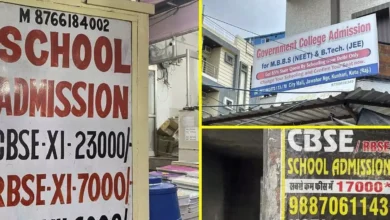Greater Noida board approves Master Plan 2041, to acquire 40,000 hectares

Greater Noida board approves Master Plan 2041, to acquire 40,000 hectares
The Greater Noida Industrial Development Authority (GNIDA) has given its approval to the Master Plan 2041 on August 12, a significant step that sets the stage for the future growth and development of Greater Noida, a satellite town near Delhi, India. The master plan outlines a comprehensive vision for the expansion and transformation of the city.
One of the key elements of the Master Plan 2041 is the proposed acquisition of an additional 40,000 hectares of land for the development and expansion of Greater Noida. This expansion plan aims to accommodate the city’s growing population and urban needs in the coming decades.

Currently, Greater Noida covers an area of 31,733 hectares. With the implementation of the Master Plan 2041, the city is projected to encompass approximately 71,733 hectares, reflecting a significant increase in its geographical footprint.
This master plan outlines a roadmap for the city’s urban development, including the allocation of land for residential, commercial, industrial, and recreational purposes, as well as the establishment of essential infrastructure and amenities. The expansion of Greater Noida is expected to contribute to economic growth, urbanization, and improved quality of life for its residents.
The approval of the Master Plan 2041 signifies a strategic and forward-looking approach by local authorities to accommodate the evolving needs of a growing population and to create a well-planned and sustainable urban environment in Greater Noida.
Officials present at the board meeting of the Greater Noida Industrial Development Authority (GNIDA) discussed the recommendations of the Amitabh Kant committee report on stalled housing projects. The Kant committee report focuses on measures to revive stalled housing projects, aiming to provide relief to approximately 2 lakh homebuyers who have been affected by delays in project completion.
The Kant committee, led by Amitabh Kant, who is India’s G20 Sherpa and former CEO of NITI Aayog, has put forth several recommendations to address the challenges faced by stalled housing projects.
One of the key proposals is to implement a moratorium on the payment of builders’ dues to the authorities. This would provide financial relief to developers and enable them to complete housing projects that have been delayed or stuck. The suggested approach entails developers gradually clearing their dues over a period of time.
Furthermore, the committee emphasizes the importance of charging a reasonable interest rate and prioritizing the completion of projects. The goal is to provide a practical and effective solution to revive stalled projects, benefiting both developers and homebuyers.
While the GNIDA board discussed the Kant-panel report, a final decision is pending until similar discussions take place with the Noida Authority and the Yamuna Expressway Industrial Development Authority (YEIDA). Given that real estate project issues are common across these authorities, a coordinated approach is being sought to develop consistent policies and solutions.
The Kant committee’s recommendations reflect a proactive effort to address the challenges in the real estate sector and provide a framework for reviving stalled housing projects, which could have a positive impact on both the real estate industry and homebuyers in the region.
The approval of the Master Plan 2041 for Greater Noida signifies a comprehensive approach to the city’s development, particularly in its second phase. The master plan outlines various aspects of expansion and urbanization, and its implementation is expected to have multiple implications:
1. Industrial Development: The Master Plan 2041 is set to drive industrial growth in Greater Noida. The plan acknowledges the need for additional land to support the expansion of industrial projects, aligning with the city’s role as an industrial hub. This move could attract investment, boost economic activities, and contribute to job creation in the region.
2. Mixed-Use Development: The plan also highlights the allocation of land for mixed-use development, which combines commercial and residential purposes. This approach supports a balanced urban environment where residents have access to both living spaces and commercial amenities.
3. Residential and Institutional Development: The master plan recognizes the importance of providing land for residential and institutional purposes. This ensures that the growing population’s housing needs are addressed while also accommodating educational and other institutional requirements.
4. Green Spaces and Transportation: The plan’s provisions for greenery and transportation infrastructure contribute to a sustainable and well-connected urban environment. Green spaces enhance the city’s aesthetics and provide recreational opportunities, while transportation infrastructure supports efficient mobility for residents.
5. Anticipating Future Demand: The decision to acquire additional land for the second phase of Greater Noida reflects an anticipation of future demands driven by factors such as industrial expansion and the upcoming Noida International Airport in Jewar. The development of transport and connectivity around the airport could lead to increased demand for land for various purposes, further driving economic growth and urbanization.
In summary, the approval of the Master Plan 2041 sets the stage for a holistic and strategic approach to Greater Noida’s development. The plan’s provisions for various land uses and infrastructure reflect a forward-looking approach to urban planning, aiming to create a well-rounded and thriving urban environment for residents, businesses, and industries.




